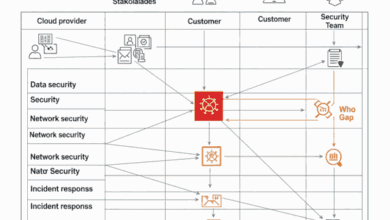Strategies for Effective Information Management in the Digital Age

The Growing Complexity of Digital Data
In our rapidly evolving digital landscape, businesses are no strangers to an unprecedented surge in data generation, transforming how they operate and strategize. The sheer volume and variety of digital data produced every moment can be overwhelming. Streams of information from social media interactions, sales transactions, and sensor data contribute to an ocean of data that businesses must navigate. Without effective management strategies, this influx may quickly become chaotic, hindering rather than helping strategic decision-making processes.
The complexities of organizing and interpreting this vast amount of information demand innovative solutions. Sophisticated data managing software becomes critical, serving not only to store but also to simplify the accessibility and usability of data. Such tools transform what could be a formidable challenge into a significant competitive advantage, enabling businesses to harness data’s full potential for insight and decision-making.
Understanding data growth trends is crucial for businesses aiming to stay ahead in their industries. Industry reports highlight the dramatic increase in data volume and emphasize the necessity for organizations to adapt to these evolving data dynamics. Ignoring these trends can lead to operational inefficiencies and missed opportunities, ultimately affecting the bottom line.
Why Data Management is Crucial
Effective data management is the backbone of any successful organization. Minimizing data loss and mismanagement risks is crucial, which could otherwise lead to severe financial and reputational damages. Businesses now recognize that appropriately managed data can transform into a strategic asset. This transformation lets companies glean powerful insights into consumer behavior, market trends, and internal process efficiencies. Such insights are critical for shaping informed business strategies and making competitive, timely decisions.
In aligning data management practices with organizational goals, companies ensure that insights are actionable and directly contribute to value creation across the entire business spectrum. This alignment boosts productivity, enhances customer satisfaction, and fosters a culture of innovation, ultimately leading to sustainable growth and long-term success.
Effective Data Management Strategies
A well-defined data management strategy is indispensable for maintaining data quality and integrity. Key strategies include systematic data categorization and tagging, which streamline retrieval processes and make information easily accessible and actionable. Regular data audits are another vital practice, enabling organizations to identify and eradicate redundant or outdated information. This ensures that databases remain tidy, relevant, and current—critical for deriving accurate insights.
By fostering a culture that embraces ongoing data enhancement and refinement, organizations can guarantee the reliability and readiness of their data to support key business functions and enhance decision-making processes, thereby securing a decisive edge over competitors.
Utilizing Advanced Tools for Data Control
Advanced technological tools are reshaping the data management landscape by making it more efficient and less error-prone. Converging artificial intelligence and machine learning into data management tools provides enhanced capabilities for analyzing large datasets in real time and extracting predictive insights. These technologies streamline data processing tasks and enable more sophisticated analysis procedures, resulting in deeper, more actionable insights.
AI-driven solutions provide businesses the agility to respond swiftly and strategically to evolving market conditions. By minimizing reliance on labor-intensive processes and reducing human error, these tools unlock new avenues for innovation, ensuring businesses remain competitive in fast-paced industries.
Ensuring Data Security and Compliance
As data breaches become more common and regulatory requirements multiply, ensuring data security and compliance is critical for all businesses. Employing robust security measures such as encryption technologies, strict access controls, and conducting regular vulnerability assessments are essential practices. Furthermore, understanding and adhering to international and regional data protection regulations minimize the risk of compliance breaches and associated legal implications.
By establishing a proactive approach to security and compliance, businesses protect sensitive data and enhance customer trust, safeguarding their brand reputation in increasingly competitive markets.
Steps to Implement Robust Data Management Systems
- Conduct a thorough assessment of current data management needs and challenges. Identify weaknesses and areas for improvement to form a solid foundation for strategies.
- Develop a clear, strategic data management plan that aligns closely with overarching business goals and objectives, ensuring cost-effectiveness and efficiency.
- Select appropriate technologies and tools that support the implementation of your data management plan, considering scalability to accommodate future growth and changes.
- Invest in training and development programs to ensure all staff are knowledgeable and competent in the latest data management best practices and technologies, fostering a culture of continuous improvement.
Real-life Examples of Successful Data Management
Consider the example of a major retail company that successfully leveraged advanced CRM systems to streamline its data architecture. By implementing state-of-the-art data management tools, this company could significantly enhance customer segmentation techniques, optimize inventory management processes, and execute targeted marketing campaigns. These initiatives resulted in substantial increases in sales and customer loyalty and satisfaction. This case exemplifies how strategic investment in robust data management practices directly contributes to operational and financial success.
Adopting integrated data management systems in the healthcare industry enables healthcare providers to access and analyze patient data more effectively. This capability leads to faster, more accurate diagnoses and improved patient care outcomes. These improvements enhance service quality and optimize operational efficiency, reducing administrative workloads and associated costs.
Future Trends in Data Management
Cloud and artificial intelligence (AI) developments will define the future of data management as data continues to grow and change. The next wave of innovation is expected to be driven by advanced machine-learning algorithms and real-time data processing. Thanks to these technologies, businesses will have access to previously unheard-of possibilities for efficiency and insight. However, they also come with difficulties, such as handling data privacy issues and guaranteeing the moral application of AI-driven findings.
Businesses that adopt and adjust to these new technologies will be in a strong position to reap significant rewards. By staying on the edge of these trends, businesses can rethink their operations and spur long-term success, turning data from a simple operational byproduct into a strategic asset that propels innovation and corporate success.




